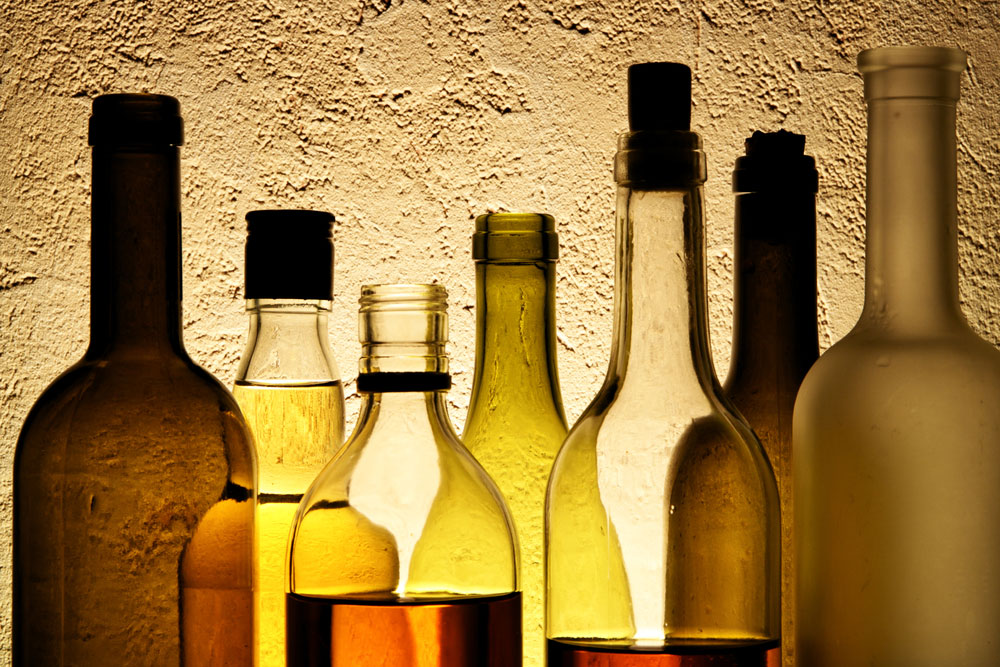Here's How Much Alcohol Is OK to Drink in 19 Countries
Introduction

How much alcohol is safe to drink? It depends on where you live — countries around the world have vastly different guidelines about the level of drinking they consider to be safe. Those differences were highlighted in a new study which examined safe drinking guidelines in 37 different countries. Here are some interesting takeaways and odd facts about safe drinking guidelines around the world:
Double standard?

Many countries have separate drinking guidelines for men and women, usually suggesting that women consume less alcohol per day and per week than men. But in some countries, the recommended limit is the same for both sexes. These include:
- Australia, which recommends drinking no more than 20 grams of alcohol per day
- Portugal, which recommends no more than 10 to 24 grams of alcohol per day
- Grenada, which recommends no more than 14 grams of alcohol per day
- South Africa, which recommends no more than 24 grams of alcohol per day
It's not clear whether there's any benefit to having separate safe drinking guidelines for men and women, the researchers said.
More alcohol on holidays

Some countries say that its safe for people to drink a little more alcohol than usual on "special occasions." For example, in Canada, the general recommended limit is two drinks a day for women and three drinks a day for men. But the guidelines also say that women can safely have up to 3 drinks, and men can have up to 4 drinks, on special occasions.
Set aside "non-drinking" days

Some countries specifically recommend that people avoid alcohol a certain number of days per week. For example, Fiji, Poland and New Zealand all recommend at least 2 alcohol-free days per week. Canada recommends that people plan to have non-drinking days each week, but they don't recommend a specific number of days.
Big drink or small?

The size of a "standard drink" varies widely between countries, from 8 grams of alcohol in Iceland to 20 grams of alcohol in Austria, according to the study. (The number of grams of alcohol in 1 ounce of a beverage can vary, for example, there are 2.4 to 2.8 grams of alcohol in an ounce of wine, but there are 1 to 1.2 grams of alcohol per ounce of beer.)
Some countries have a very precise recommendation for the size of a standard drink, for example, its 13.6 grams in Canada, and 12.8 grams in Luxembourg.
Get the world’s most fascinating discoveries delivered straight to your inbox.
In many countries, the standard drink size is 10 grams of alcohol, which matches the recommendation from the World Health Organization.
Low drinking limits

Recommendations for daily drinking limits are lowest in Croatia, India, Singapore, Sweden, Slovenia, Bosnia and Herzegovina. All of these countries recommend no more than 10 grams of alcohol for women, and 20 for men, on a typical day.
High drinking limits

The United States and Chile have the highest daily drinking limits. These countries say that women can have up to 3 drinks, and men up to 4 drinks, on a single day. But this doesn't mean that its safe to drink that much every day. The recommended weekly limit In the U.S. is 7 drinks per week for women, and 14 for men.

Rachael is a Live Science contributor, and was a former channel editor and senior writer for Live Science between 2010 and 2022. She has a master's degree in journalism from New York University's Science, Health and Environmental Reporting Program. She also holds a B.S. in molecular biology and an M.S. in biology from the University of California, San Diego. Her work has appeared in Scienceline, The Washington Post and Scientific American.
 Live Science Plus
Live Science Plus





